Michiel de Ruyter – Battle of Kijkduin
Superb large view of a pivotal moment in Dutch history
Detail
Date of first edition: 1687
Date of this map: 1687
Dimensions (not including margins): 27,5 x 51 cm
Dimensions (including margins): 30,1 x 54,5 cm
Condition: Good. Copper engraving on two sheets, joined. Three vertical fold as published. Wide margins. A few minor tears professionally previously restored.
Condition rating: A
Verso: blank
From: ‘Het leven en bedryf van den heere Michiel de Ruiter’. Amsterdam. a.d. 1687, Geeraert Brandt (1626-1685) author and Daniel Stoopendaal (1672-1726) engraver.
In stock
Kijkduin
Do or die? The epic battle of Kijkduin took place off the southern coast of island of Texel. It is the pivot moment with respect to the survival of the new republic!
After the Dutch victory at Chatham a British invasion of the Republic remained possible. On 21 August 1673, de Ruyter was able to halt a combined (and much larger) Anglo-French fleet led by Prince Ruprecht of the Palatinate, Duke of Cumberland, and Count Jean II d’Estrées. Although this last battle in the Third Anglo-Dutch War came to a definite end, the Republic turned away the English invasion plans for good. However, the political and military heyday of the Seven Province also came to an end.
Index or legend (in three parts) on war ships: 1 – 115
Title: Zee-Slagh Tusschen de Hr. Admiraal Michiel de Ruiter, en de Hr. Prins Robbert en Graaf de Estrée. By Kykduyn en Helder op den 21. Augusti 1673 – 1687
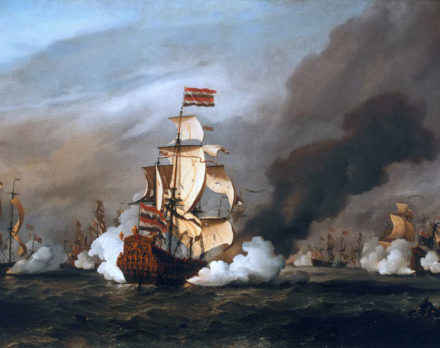
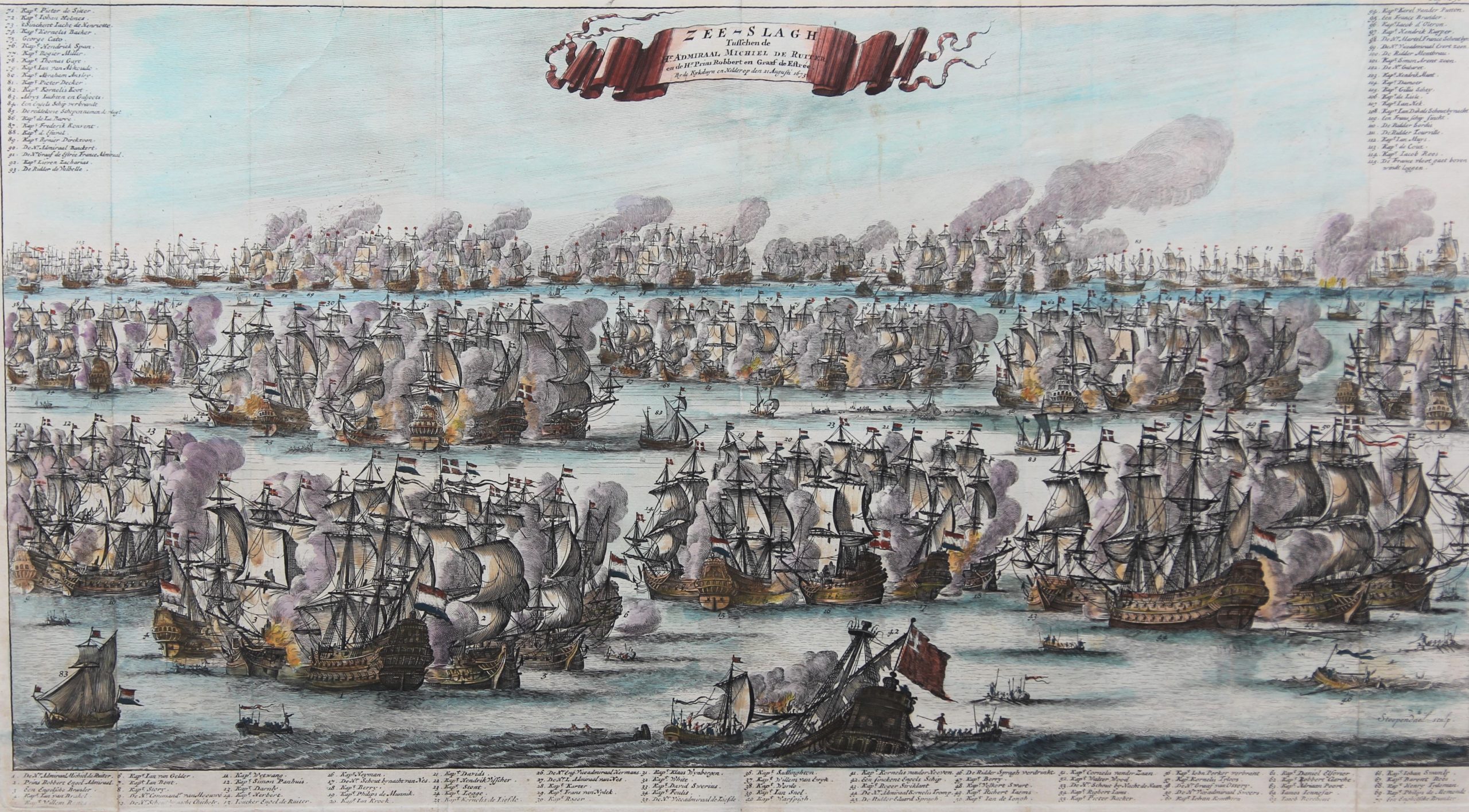
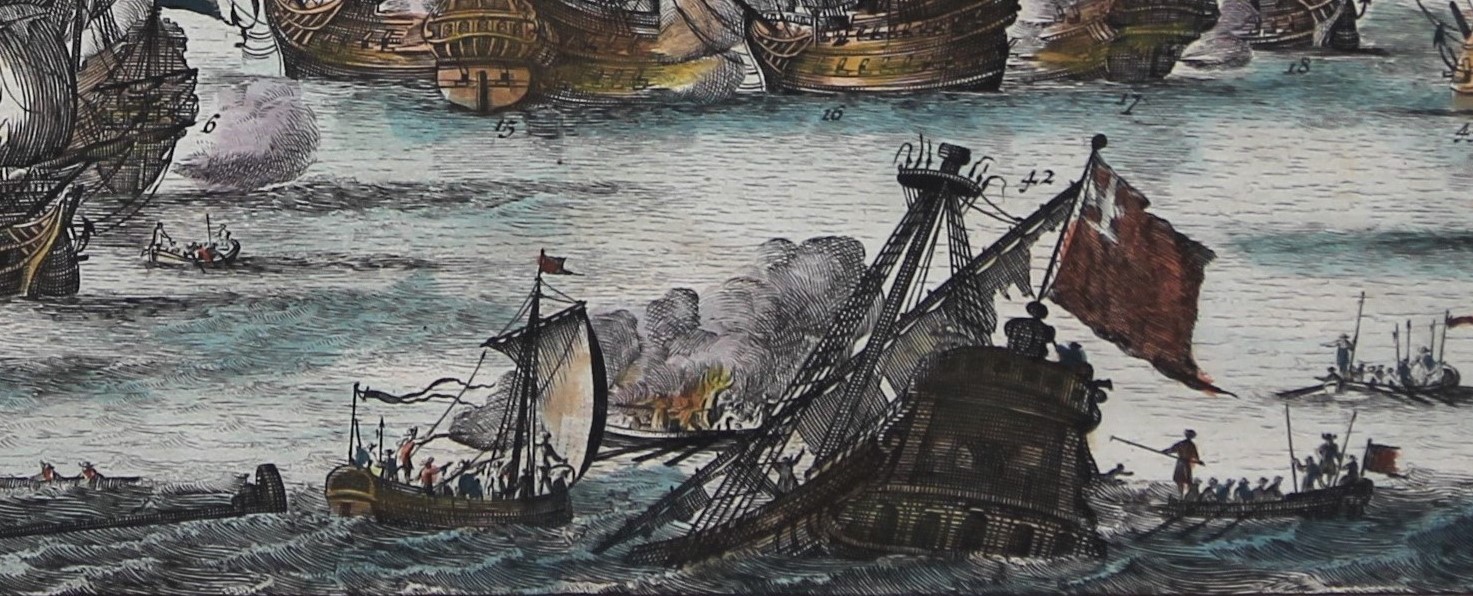
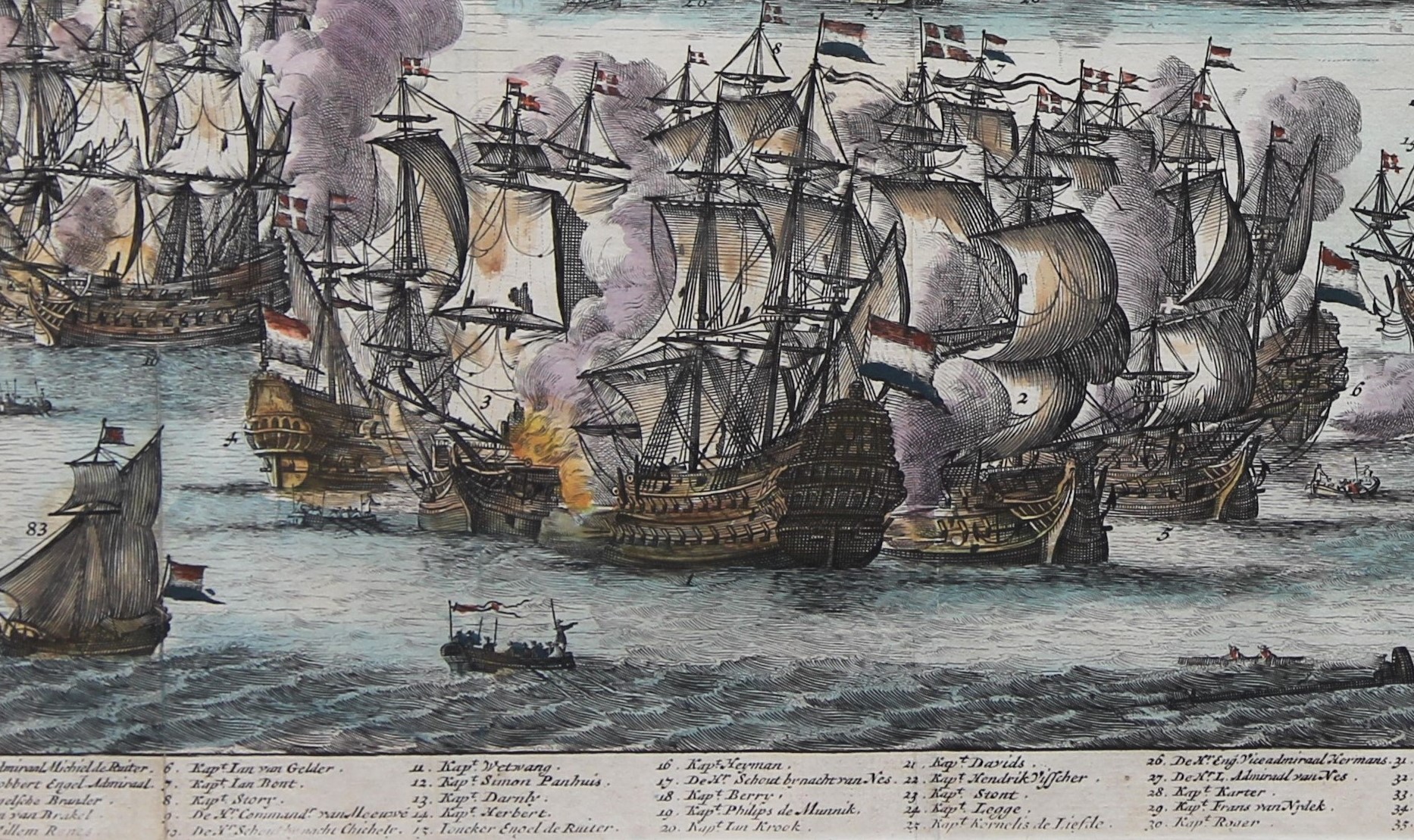

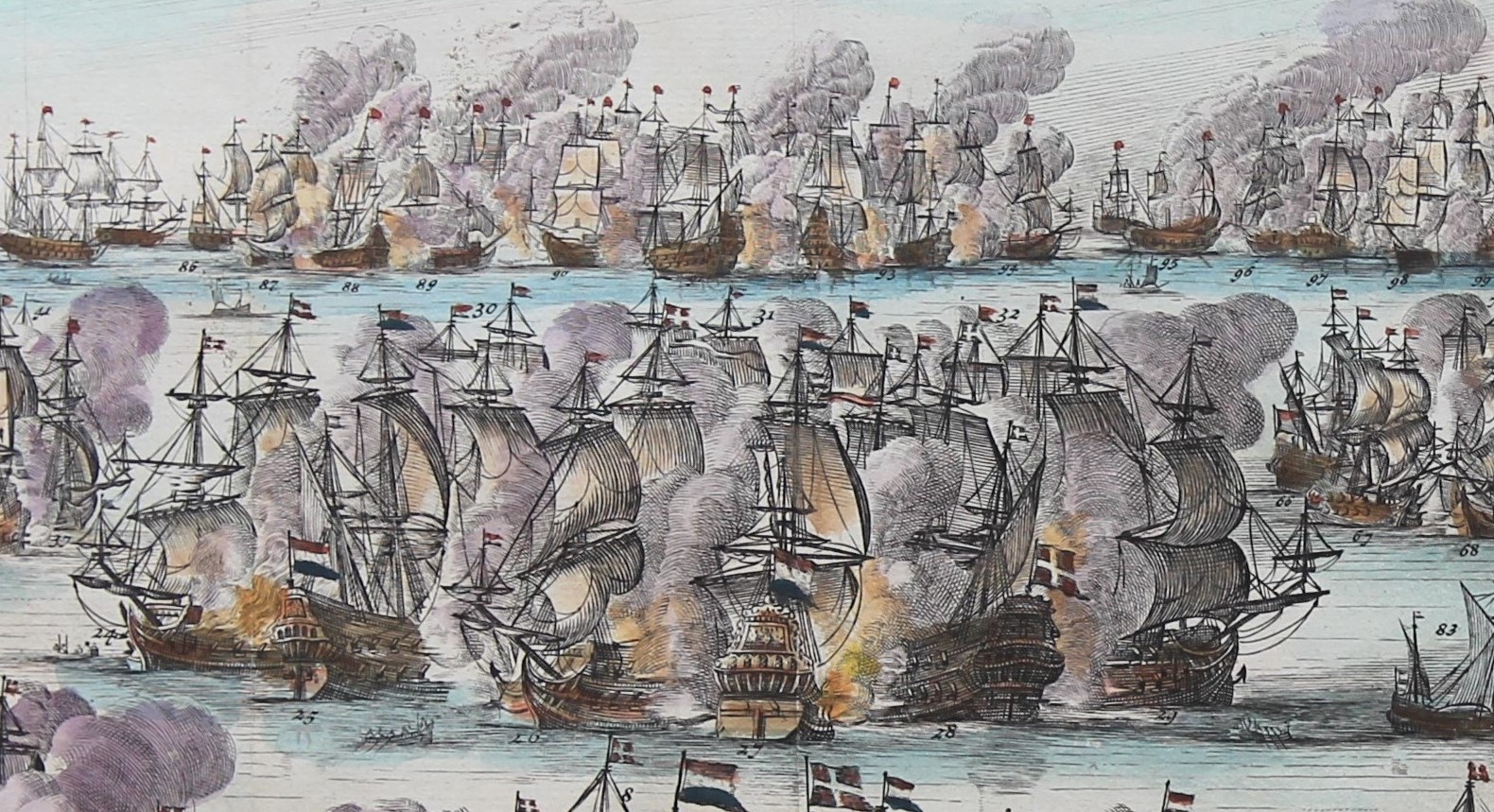
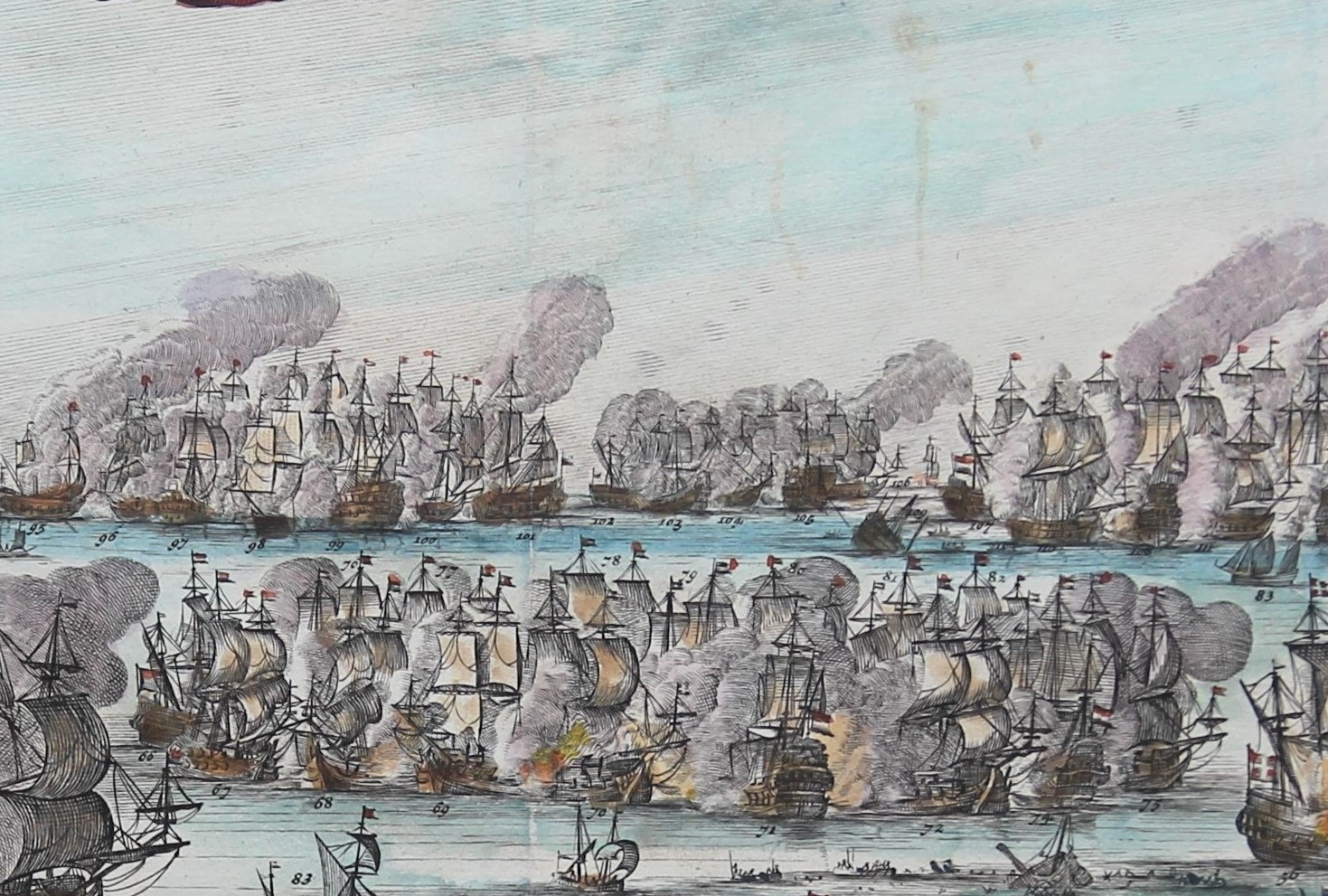
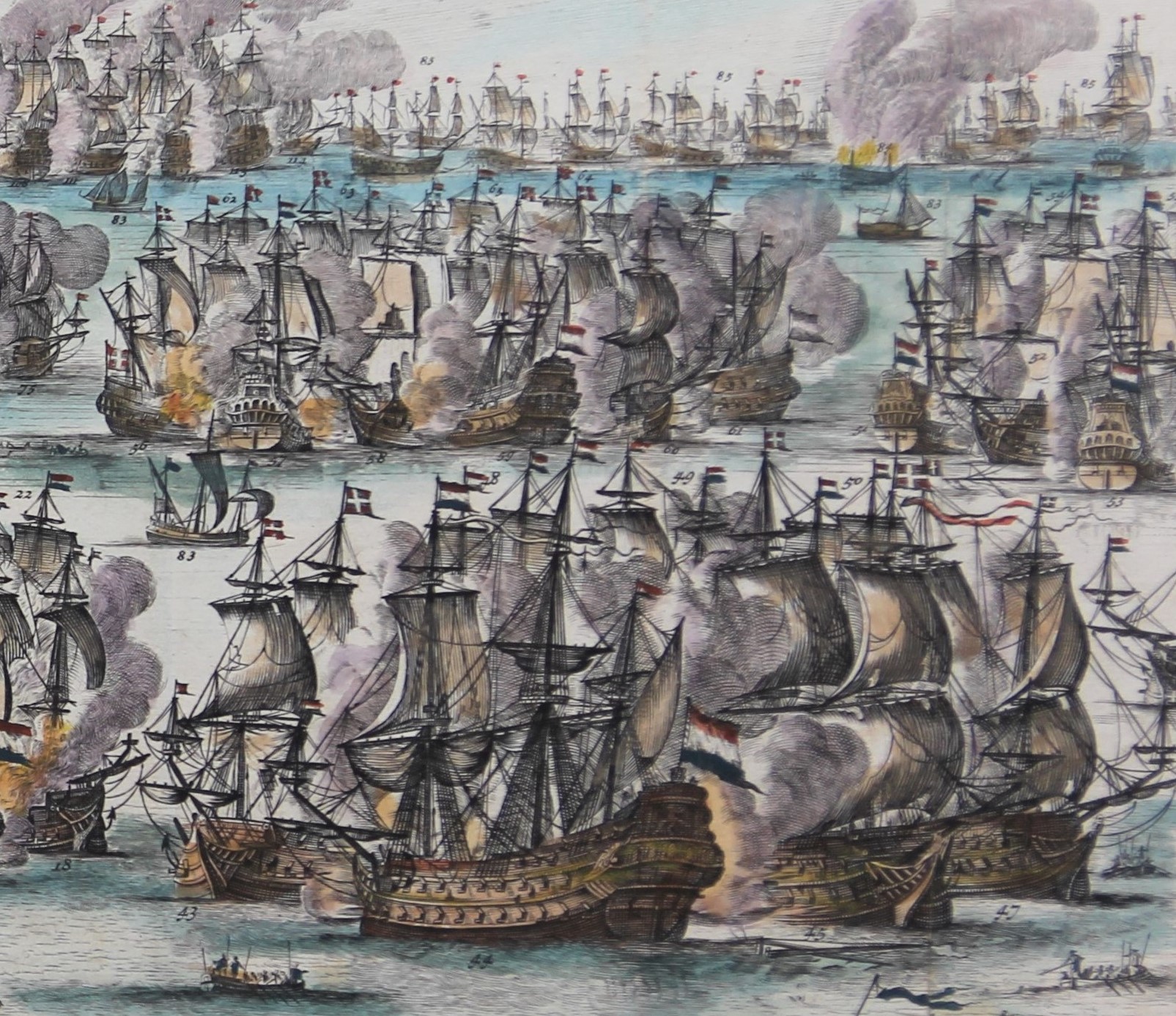
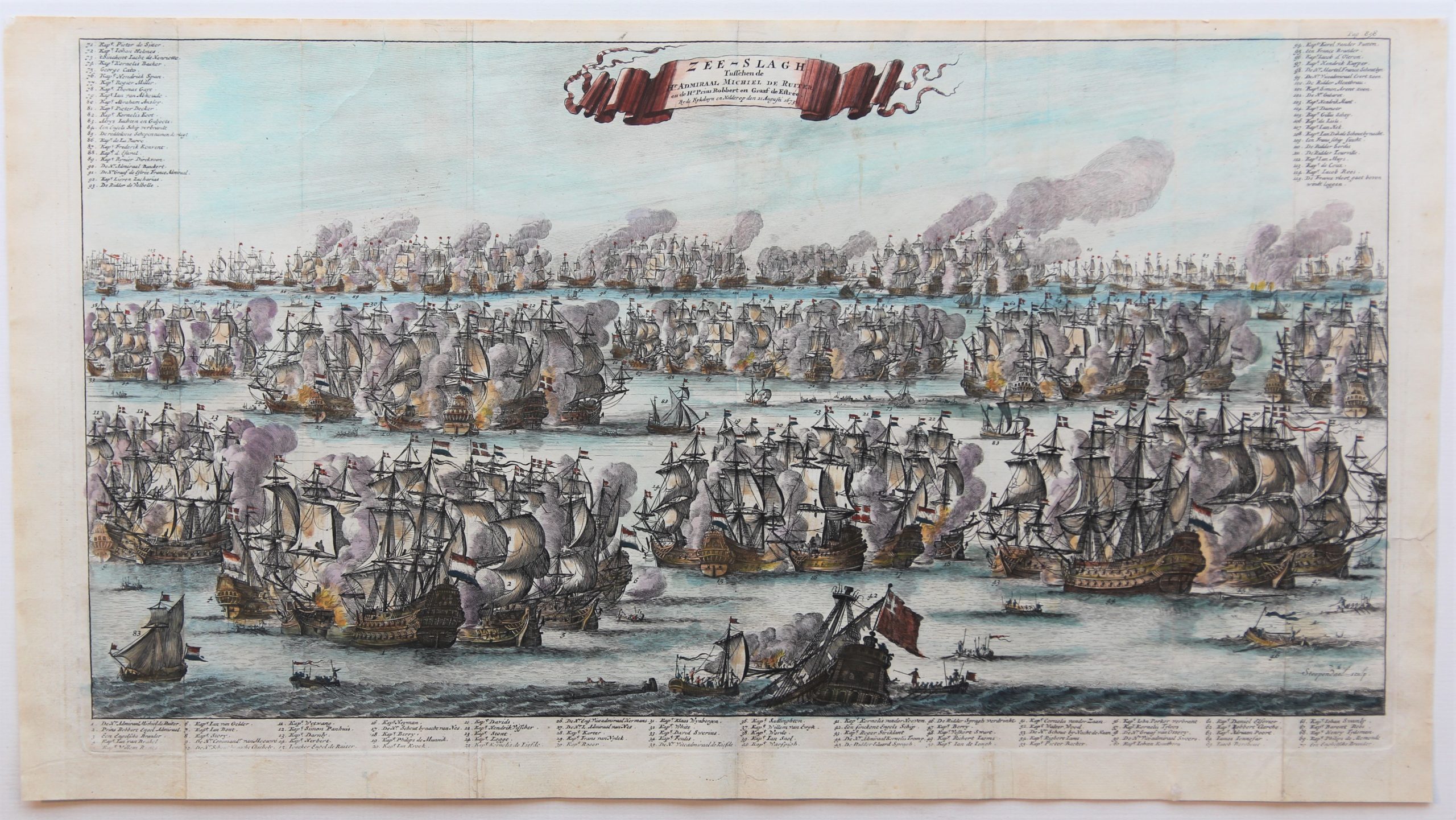
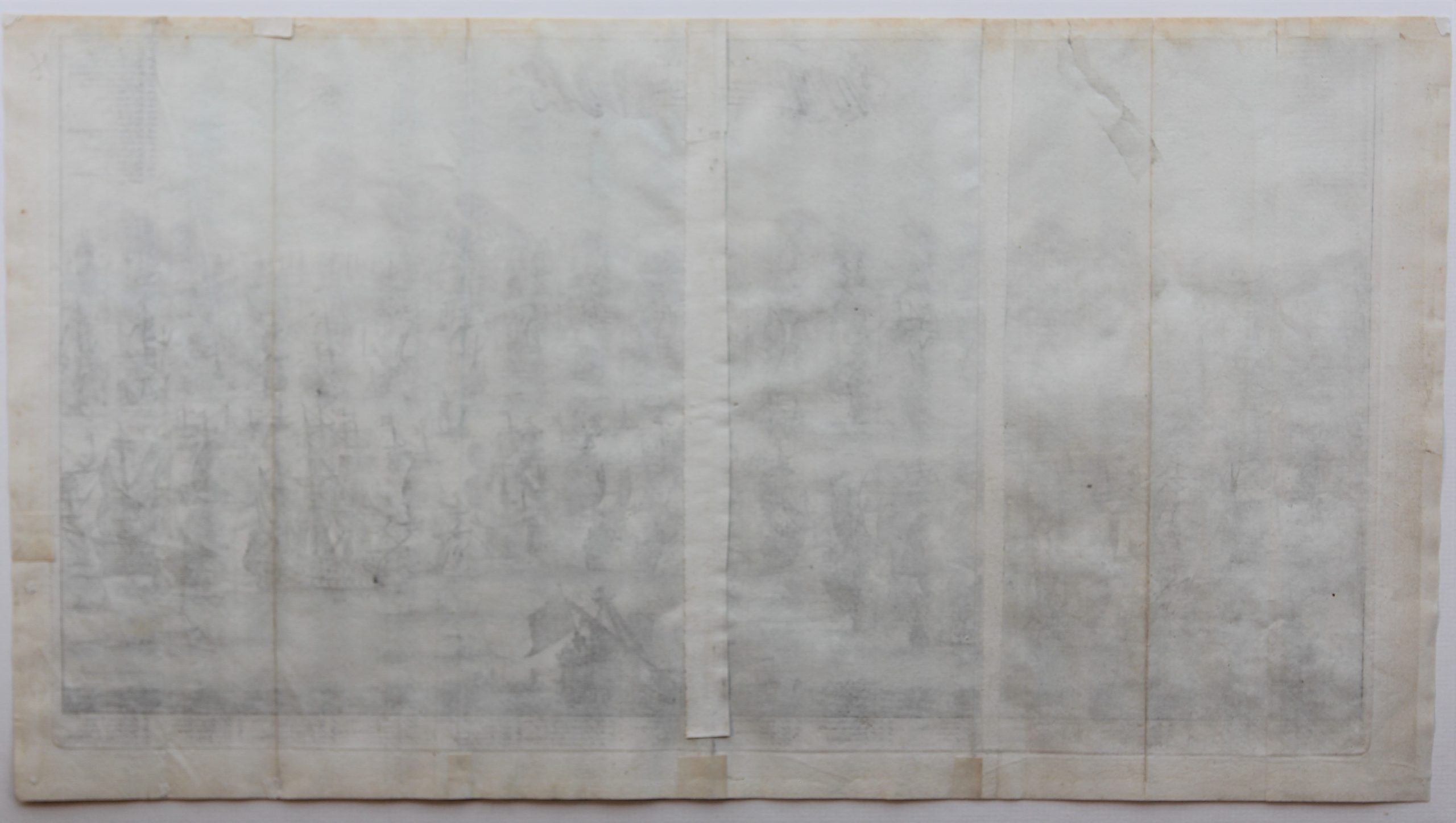
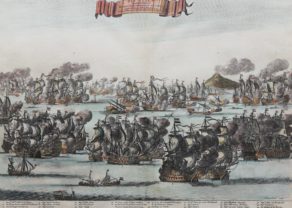


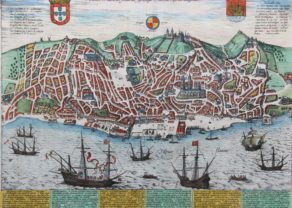
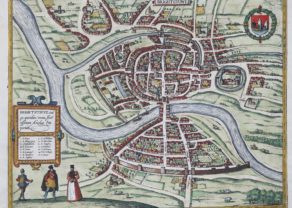
Michiel de Ruyter: a general approach by Stoopendaal
Adriaenszoon Michiel de Ruyter (Flushing-Vlissingen, March 24, 1607 – Bay of Syracuse, April 29, 1676) was a prosperous merchant in Zeeland.In the 1640s, he (at the Battle of Cape St. Vincent in Portugal in 1641 he was already Rear Admiral) got some naval experience as he was the Rear Admiral (Schout-bij-Nacht at the Battle of Cape St. Vincent in Portugal in 1641). The function of the Rear Admiral is to sail as the last ship in a convoy and to watch the defense of the back of the fleet. Hence its name.
At the beginning of the First Anglo-Dutch War in 1652 de Ruyter had in fact already “retired”. However, the Admiralty of Zeeland appealed to his sense of duty. Even more so, when the Dutch admiral Maarten Tromp died in the Battle of Scheveningen on August 10, 1653, de Ruyter first refused the top job in the Dutch Navy, but he became nevertheless admiral of the Admiralty of Amsterdam. As a non-noble boy from the far-away Vlissingen he was socially miles away removed from the noble elite circles of the newborn country and from its Navy.
Unfortunately, the young Republic was torn apart in a civil war (even with incredible external threats from both England and France): Orangists (in favor of William III, also King of England) against Republicans. De Ruyter was unwillingly placed in the camp of the Republican advocate, Johan de Witt, then Pensionary of Holland… and in practice of the political leader of the Republic. In 1665 Michiel was appointed by the Witt to Admiral of the Navy, much to the displeasure of Cornelis Tromp, son of the late Admiral Martin Tromp and a fierce supporter of William. During 20 year Michiel obtained one naval success after the other, most often against the stronger British navy, but also against the French, sometimes in combination. His tactics and strategy are still study materials in the marine worldwide. This took place against an increasing erupting civil war at home! As we know, the Orangists eventually get the upper hand in the 1670s, and Witt was murdered in 1672. This effectively sealed the fate of de Ruyter. William II sent him on what could only be described as a suicide mission (and Michiel knew this): a naval battle against a vastly superior French opponent in 1676 at Zarda(Syracuse, Sicily). He would not return alive: the French stopped all hostilities when they heard that de Ruyter had died: they opened a solemn row of admiration to let the Dutch fleet sail home.